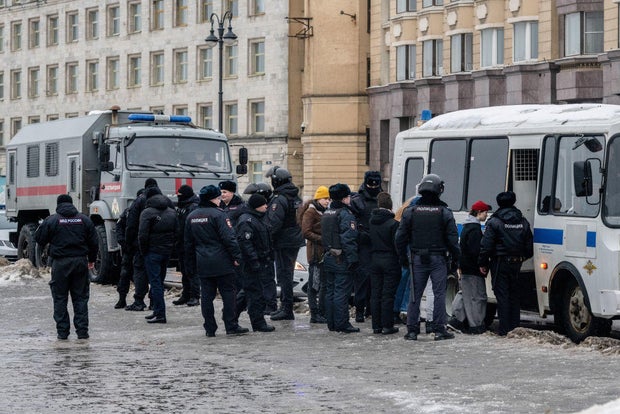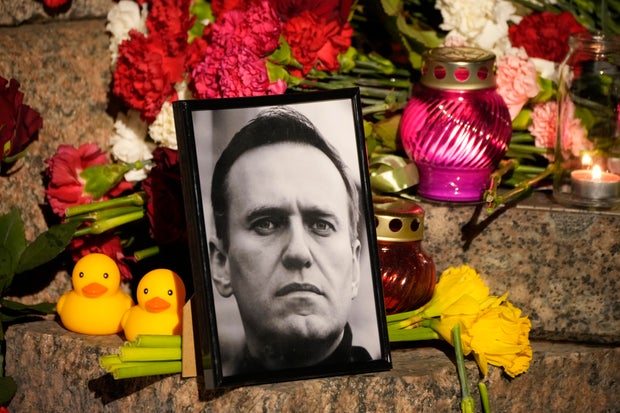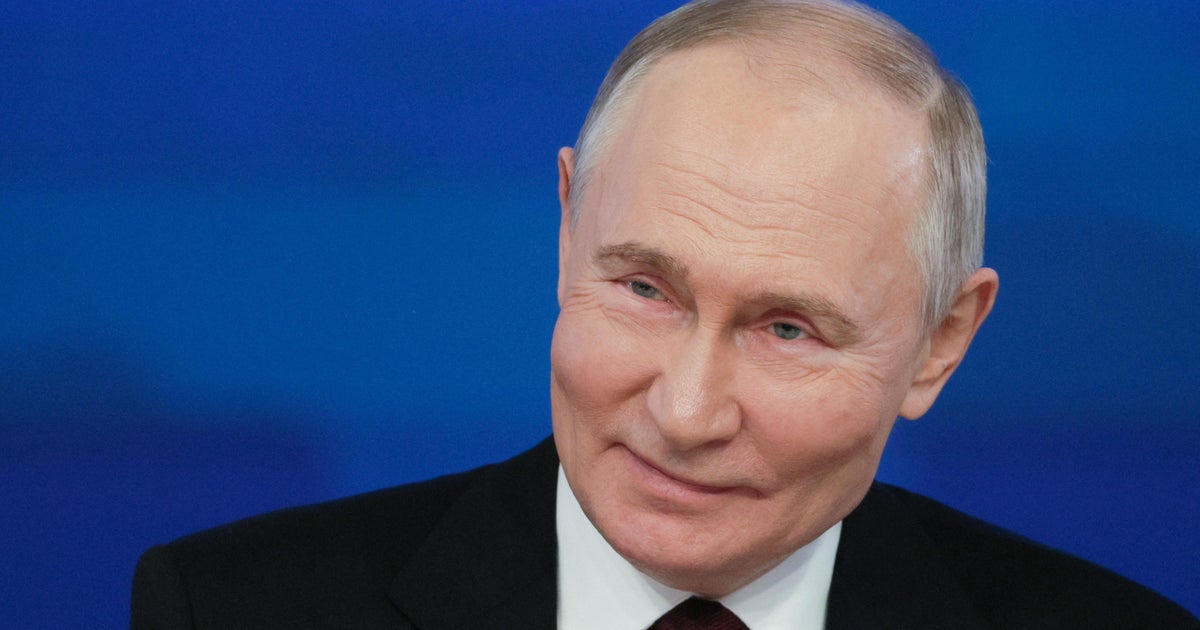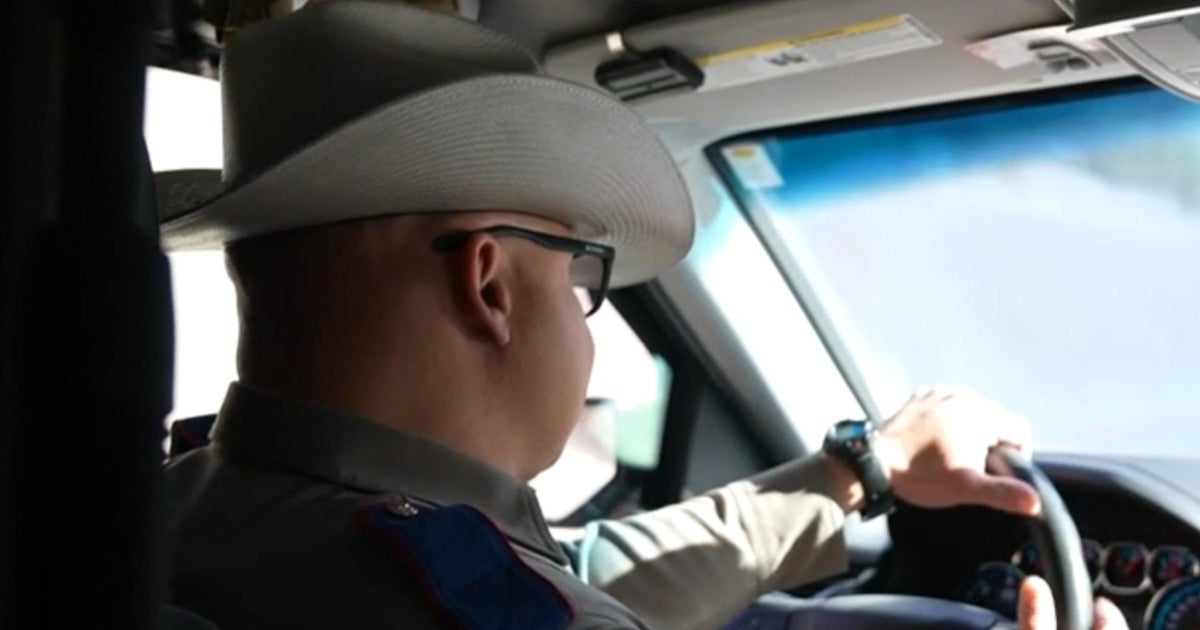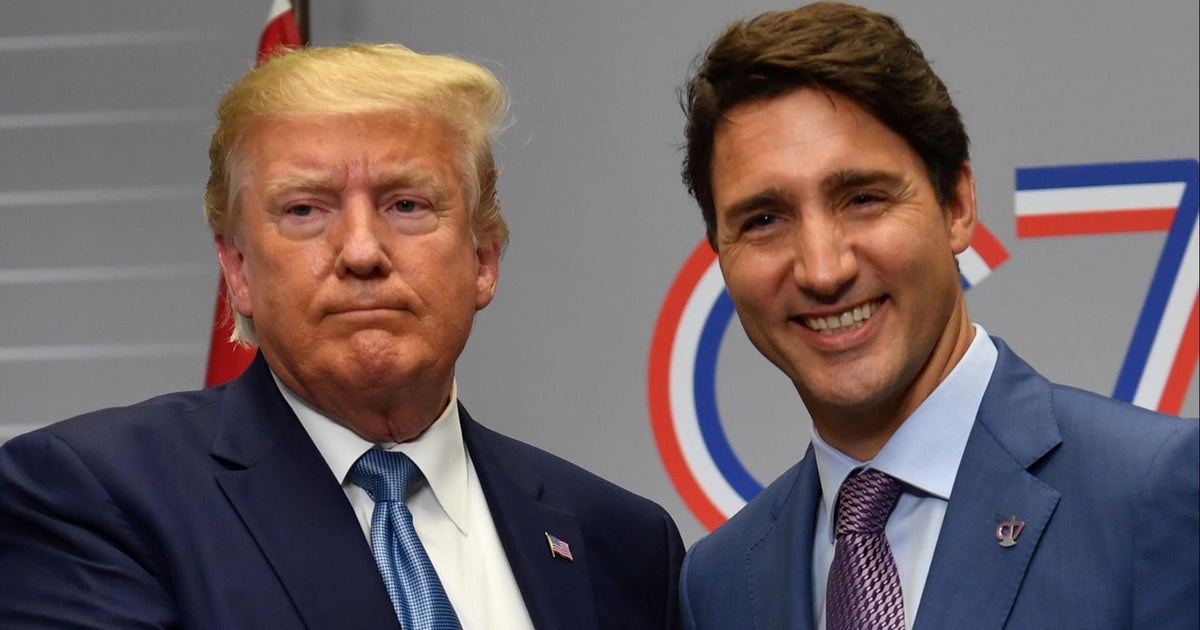CBS News
More than 400 detained in Russia as country mourns the death of Alexey Navalny
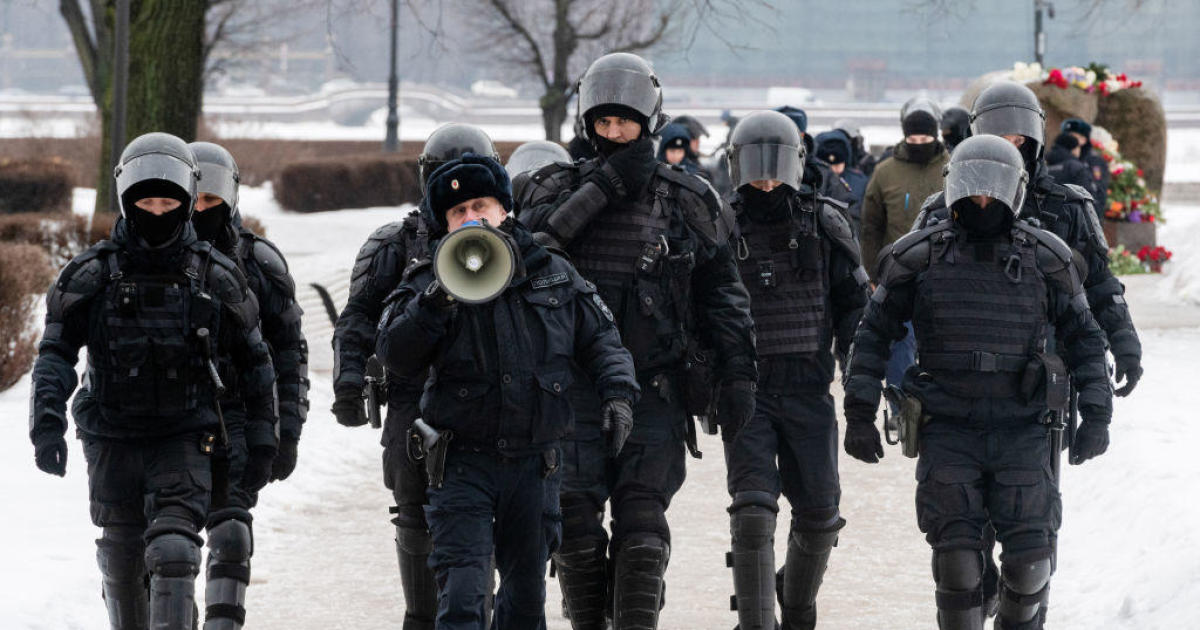
More than 400 people were detained in Russia while paying tribute to opposition leader Alexey Navalny, who died at a remote Arctic penal colony, a prominent rights group reported.
The sudden death of Navalny, 47, was a crushing blow to many Russians, who had pinned their hopes for the future on President Vladimir Putin’s fiercest foe. Navalny remained vocal in his unrelenting criticism of the Kremlin even after surviving a nerve agent poisoning and receiving multiple prison terms.
The news reverberated across the globe, and hundreds of people in dozens of Russian cities streamed to ad-hoc memorials and monuments to victims of political repressions with flowers and candles on Friday and Saturday to pay a tribute to the politician. In over a dozen cities, police detained 401 people by Saturday night, according to the OVD-Info rights group that tracks political arrests and provides legal aid.
More than 200 arrests were made in St. Petersburg, Russia’s second largest city, the group said. Among those detained there was Grigory Mikhnov-Voitenko, a priest of the Apostolic Orthodox Church — a religious group independent of the Russian Orthodox Church — who announced plans on social media to hold a memorial service for Navalny and was arrested on Saturday morning outside his home. He was charged with organizing a rally and placed in a holding cell in a police precinct, but was later hospitalised with a stroke, OVD-Info reported.
Andrei Bok/SOPA Images/LightRocket via Getty Images
Courts in St. Petersburg have ordered 42 of those detained on Friday to serve from one to six days in jail, while nine others were fined, court officials said late on Saturday. In Moscow, at least six people were ordered to serve 15 days in jail, according to OVD-Info. One person was also jailed in the southern city of Krasnodar and two more in the city of Bryansk, the group said.
The news of Navalny’s death came a month before a presidential election in Russia that is widely expected to give Putin another six years in power. Questions about the cause of death lingered on Sunday, and it remained unclear when the authorities would release his body to his family.
Navalny’s team said Saturday that the politician was “murdered” and accused the authorities of deliberately stalling the release of the body, with Navalny’s mother and lawyers getting contradicting information from various institutions where they went in their quest to retrieve the body. “They’re driving us around in circles and covering their tracks,” Navalny’s spokeswoman, Kira Yarmysh, said on Saturday.
“Everything there is covered with cameras in the colony. Every step he took was filmed from all angles all these years. Each employee has a video recorder. In two days, there has been not a single video leaked or published. There is no room for uncertainty here,” Navalny’s closest ally and strategist Leonid Volkov said Sunday.
A note handed to Navalny’s mother stated that he died at 2:17 p.m. Friday, according to Yarmysh. Prison officials told his mother when she arrived at the penal colony Saturday that her son had perished from “sudden death syndrome,” Ivan Zhdanov, the director of Navalny’s Anti-Corruption Foundation, wrote on X, formerly known as Twitter.
AP Photo/Dmitri Lovetsky
Russia’s Federal Penitentiary Service reported that Navalny felt sick after a walk Friday and became unconscious at the penal colony in the town of Kharp, in the Yamalo-Nenets region about 1,200 miles northeast of Moscow. An ambulance arrived, but he couldn’t be revived, the service said, adding that the cause of death is still “being established.”
Navalny had been jailed since January 2021, when he returned to Moscow after recuperating in Germany from nerve agent poisoning he blamed on the Kremlin. He has received three prison terms since his arrest, on a number of charges he has rejected as politically motivated.
After the last verdict that handed him a 19-year term, Navalny said he understood he was “serving a life sentence, which is measured by the length of my life or the length of life of this regime.”
Hours after Navalny’s death was reported, his wife, Yulia Navalnaya, made a dramatic appearance at the Munich Security Conference.
She said she was unsure if she could believe the news from official Russian sources, “but if this is true, I want Putin and everyone around Putin, Putin’s friends, his government to know that they will bear responsibility for what they did to our country, to my family and to my husband.”
CBS News
Frito-Lay recalls Lay’s Classic Potato Chips over undisclosed ingredient

Frito-Lay is recalling a limited number of 13 oz. bags of Lay’s Classic Potato Chips after being alerted by a consumer contact that the product may contain undeclared milk.
The bags of chips affected by recall were distributed to certain retail stores and e-commerce distributors in Oregon and Washington and were available for sale beginning Nov. 3, 2024.
“Those with an allergy or severe sensitivity to milk run the risk of a serious or life-threatening allergic reaction if they consume the recalled product,” the Food and Drug Administration said in the recall notice posted Thursday.
No allergic reactions related to the recall have been reported, according to the recall. Additionally, no other Lay’s products, flavors, sizes or variety packs are affected.
FDA
The recalled chips include Lay’s Classic Potato Chips, in flexible 13 oz. (368.5 grams) bags with UPC code 28400 31041, a “Guaranteed Fresh” date of 11 Feb 2025, and one of either two manufacturing codes: 6462307xx or 6463307xx.
General guidelines from the FDA advise consumers who have purchased any recalled food to dispose of the product or return it to the retailer for a full refund.
CBS News
What to know about DA Fani Willis’ removal from Trump case

Watch CBS News
Be the first to know
Get browser notifications for breaking news, live events, and exclusive reporting.
CBS News
What is the debt ceiling? Here’s why Trump wants Congress to abolish it before he takes office
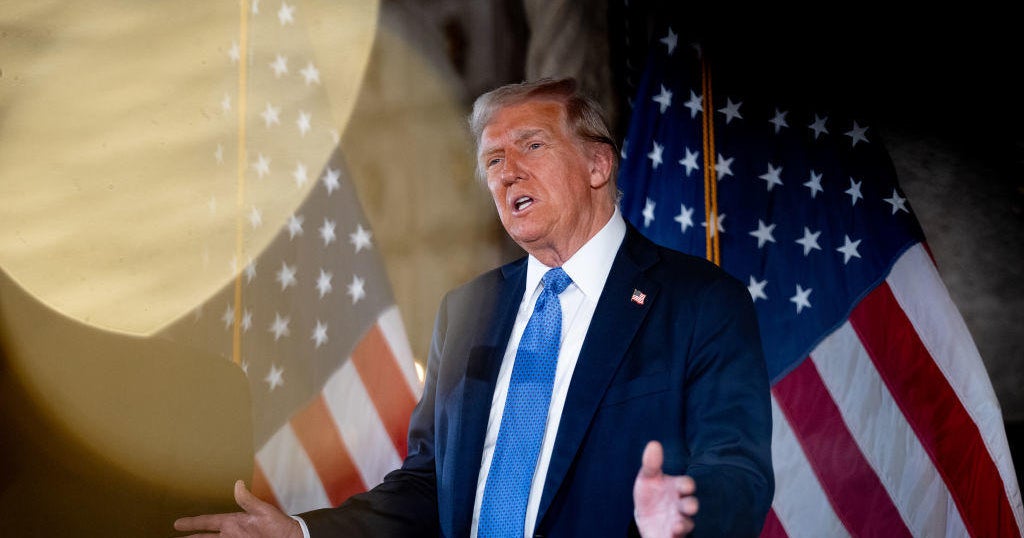
Washington — President-elect Donald Trump, Vice President-elect JD Vance and billionaire Elon Musk blew up a GOP-backed deal to fund federal agencies into March, raising the pressure on Republican congressional leaders to craft a plan to avert a government shutdown just before the holidays.
In a statement Wednesday, Trump and Vance lambasted the agreement for including provisions favored by Democrats. But the incoming president and vice president also added a new, significant wrinkle to negotiations when they urged Congress to raise or abolish the debt ceiling now, instead of next year.
“Increasing the debt ceiling is not great but we’d rather do it on Biden’s watch,” Trump and Vance said in their statement. “If Democrats won’t cooperate on the debt ceiling now, what makes anyone think they would do it in June during our administration? Let’s have this debate now.”
What is the debt ceiling?
Set by Congress, the debt ceiling, or limit, is the maximum amount of money the U.S. Treasury is authorized to borrow to pay debts incurred by the federal government. Lifting the debt ceiling does not authorize new spending, but instead lets the government spend money on obligations that Congress has already been approved.
Failing to address the debt ceiling could lead the U.S. to default on its debt, which would have devastating effects on the economy. The government has never defaulted, and the Treasury typically uses accounting moves, known as “extraordinary measures,” to delay breaching the debt ceiling.
While raising the debt ceiling used to be routine, legislation addressing it has in recent years been used as leverage to force policy concessions and fuel debates over government spending.
Congress last addressed the debt ceiling in June 2023 as part of a legislative package negotiated by President Biden and then-House Speaker Kevin McCarthy. That deal suspended the debt ceiling through Jan., 1, 2025, ensuring any fight over it would take place after the 2024 elections.
The Treasury Department will likely implement extraordinary measures to stave off a default in the new year. It will also announce an “X date,” the estimated point at which the government will no longer be able to pay its obligations. The Economic Policy Innovation Center, a conservative think tank, projected in an analysis released Monday that it’s possible the debt limit will be reached by June 16.
While the Treasury Department’s use of extraordinary measures would give Congress more time to address the debt ceiling, Trump is now urging lawmakers to take action now, before he takes office.
Why does Trump want to raise the debt ceiling?
The president-elect will come into office with a legislative to-do list that includes securing the border and extending provisions of his signature Tax Cuts and Jobs Act, which was enacted in 2017 and overhauled the tax code. But a fight over the debt ceiling could complicate efforts by the Republican-led House and Senate to focus on those legislative initiatives and pass them quickly.
Trump is urging lawmakers to eliminate the debt ceiling altogether, a position that some prominent Democrats have endorsed in the past.
“Number one, the debt ceiling should be thrown out entirely,” Trump said in a phone interview Thursday with CBS News’ Robert Costa. “Number two, a lot of the different things they thought they’d receive [in a recently proposed spending deal] are now going to be thrown out, 100 percent. And we’ll see what happens. We’ll see whether or not we have a closure during the Biden administration. But if it’s going to take place, it’s going to take place during Biden, not during Trump.”
Trump separately told ABC News that “there won’t be anything approved unless the debt ceiling is done with,” indicating any spending deal to prevent a shutdown must address the debt limit.
“If we don’t get it, then we’re going to have a shutdown, but it’ll be a Biden shutdown, because shutdowns only [injure] the person who’s president,” he told ABC News.
Whether Republicans and Democrats would go along with such a plan, though, is far from clear. GOP lawmakers in both chambers have opposed raising the debt ceiling without spending reforms, and debates over the debt limit often give way to broader fights over the federal budget, which conservatives in Congress have said is bloated and should be reduced. Plus, Democrats still control the Senate and the White House.
White House press secretary Karine Jean-Pierre said in a statement Wednesday that shutting down the government would harm families and endanger services Americans rely on.
“Republicans need to stop playing politics with this bipartisan agreement or they will hurt hardworking Americans and create instability across the country,” she said. “President-elect Trump and Vice President-elect Vance ordered Republicans to shut down the government and they are threatening to do just that — while undermining communities recovering from disasters, farmers and ranchers, and community health centers.”
House Democratic Leader Hakeem Jeffries suggested Democrats would not go along with a plan pushed by Republicans to raise the debt limit.
“GOP extremists want House Democrats to raise the debt ceiling so that House Republicans can lower the amount of your Social Security check. Hard pass,” the New York Democrat wrote on the social media platform Bluesky.
Jeffries also told reporters “the debt limit issue and discussion is premature at best.”


